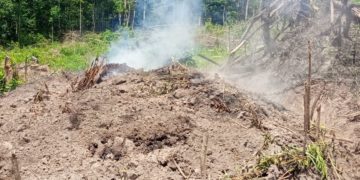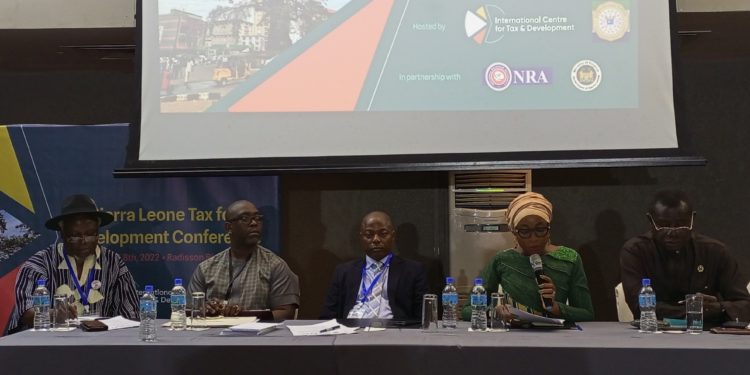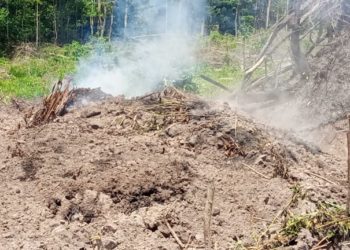The first international conference on taxation in Sierra Leone concluded on Thursday with calls for an end to inequality in the country’s tax administration system.
The meeting which brought together researchers, policy makers, taxpayers and accountability campaigners provided a platform to discuss tax collection for the country’s development. Advocates for tax justice made a case for enhanced revenue generation and their productive for national development.
The two-day event was organized by the International Centre for Tax and Development (ICTD) and the Budget Advocacy Network (BAN), in collaboration with the National Revenue Authority (NRA) and the Ministry of Finance. It comes at the backdrop of the Covid-19 pandemic, which expert reports say has proven challenging for Sierra Leone, alongside the effect of the protracted Russia-Ukraine war. Collectively, they have led to high inflation, which has exacerbated food insecurity in the country.
With growth slowing globally, Sierra Leone is in a difficult fiscal position, requiring the government to review its tax revenue upwards to finance vital infrastructure and the public services citizens need, the organizers said in a statement ahead of the conference convened at the Radisson Blu Mammy Yoko Hotel in Freetown.
A major focus of the conference was how Sierra Leone could achieve this goal without it negatively affecting investment and overburdening the vulnerable masses.
Abu Brima, Executive Director of the Network Movement for Justice and Development (NMJD), who chaired the opening ceremony, stressed the need to bridge the gap in the payment of tax. NMJD advocates for just mining. Mr Brima cites issues with the way tax is administered in the sector and their negative effects on mining communities. He faults the formula used to distribute tax from mining companies to local communities, which he said leaves the landowners with less than they deserve.
“It’s no surprise that the mining communities happen to be about the poorest across the country, which is really a contradiction,” he said.
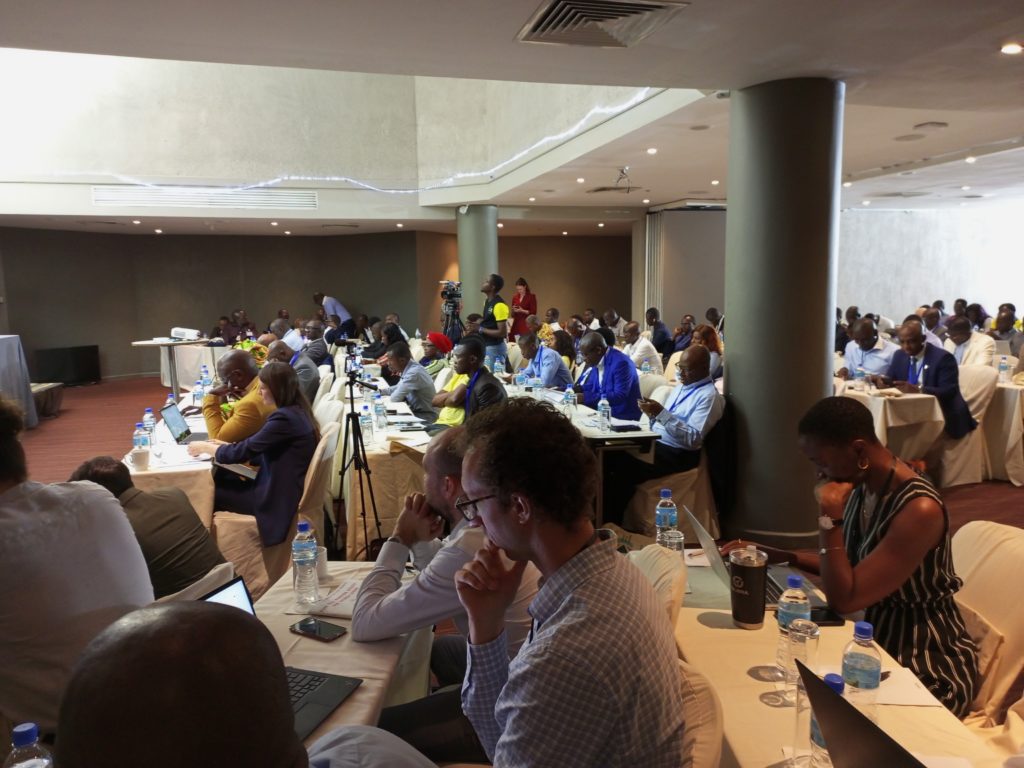
The conference. Held on the theme: ‘Tax for Development in Sierra Leone,’ featured about nine sessions, characterised by statements and presentation of research papers on various issues around tax administration in Sierra Leone, as well as panel discussions. The topics included revenue potential and performance, tax and equity, and taxpayer engagement.
Over 100 participants, mostly from within Sierra Leone but also from countries like the UK, Canada, Nigeria and Liberia, attended the event.
Other topics discussed included taxing the informal sector, the use of technology in tax administration and local government taxation.
The ICTD is an independent research centre focused on improving tax policy and administration in lower-income countries. Based at the Institute of Development Studies at the University of Sussex in the UK and the Munk School of Global Affairs and Public Policy at Canada’s Toronto University, the research institute supports its partners in raising more revenue to fund public services in ways that are equitable, efficient, and strengthen accountability.
Founded in 2010, ICTD is funded by the UK Foreign, Commonwealth and Development Office (FCDO), the Bill & Melinda Gates Foundation and the Norwegian Agency for Development Cooperation (Norad).
Dr Vanessa van den Boogaard, a Research Fellow with ICTD and lead organizer of the Freetown conference, said the goal was to share lessons in the many research that had been conducted not just by ICTD but also within the NRA and other academic institutions.
Dr van den Boogaard, who is based at the University of Toronto, has been conducting research with partners in Sierra Leone for over ten years as part of the ICTD collaboration. She said in a statement that with the 2023 budget in progress, and a real need for more revenue to deliver improvements in energy, healthcare, education, and other essential development objectives, this conference offered an opportunity to share results from the various research presented with the key stakeholders in the tax administration system.
The ICTD’s focus is “not just thinking about how to raise more money, but thinking about how to make taxes fair, more accountable, more equitable, and more responsive to citizens so [that] they actually see something in return for their taxes,” she told ManoReporters on the side lines of the conference.
The ICTD published its first study on Sierra Leone in 2013, co-authored by Dr Wilson Prichard, who is now its Executive Director, and Dr Samuel Jibao, now the Commissioner General of NRA.
Jibao, in a statement at the conference, stressed on the need to focus on better taxation, rather than more taxation. He said that domestic revenue mobilization is the best and most sustainable way to run any economy, especially in light of the current global economic crisis.
“With the multiple shocks that have hit the global economy, even donor funds are now shacky, because everybody is now busy solving their own problems,” he said, adding: “In as much as we have to generate revenue to support the fiscal space of government, we are conscious about the key principles – the issue of better taxation and not more taxation.”
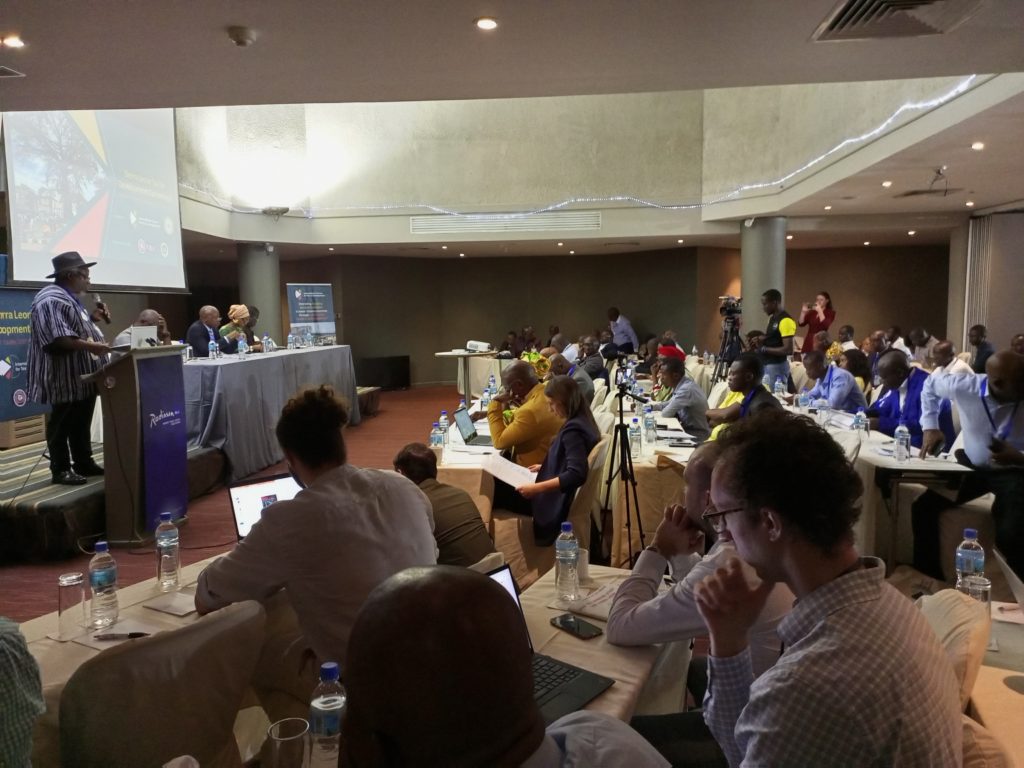
BAN, the local co-host, is a network of civil society organisations dedicated to promoting budgetary actions that enhance policy making and implementation for sustainable and equitable development. Established in 2006, BAN consists of local and international organizations such like ActionAid, renowned for its advocacy for the eradication of poverty and injustice.
Foday Bassie Swaray, Executive Director of ActionAid International Sierra Leone, reiterated the organization’s position on actions needed for government to take advantage of potential revenue streams to support key services like health and education. He cited their most recent publication on public sector wage bill in the country, which recommended that blocking leakages ad cutting down tax holidays and harmful tax incentives in the extractive and mining sector alone could generate an annual revenue of at least US$100million.
“The question now is, are we so powerless as a country to ensure the implementation of the right policies, to ensure [that] those that are supposed to pay more, pay more?” he says.
BAN’s Coordinator, Abu Bakarr Kamara, said ahead of the conference that it was meant to bring stakeholders together to address the “critical issue” of mobilising tax revenue in a transparent and accountable manner.
“In these hard times, it is important that we engage so that the best policy options can be determined and implemented, and that this is done transparently so that taxpayers can hold the government accountable for how public revenue is raised and utilised,” he was quoted.

